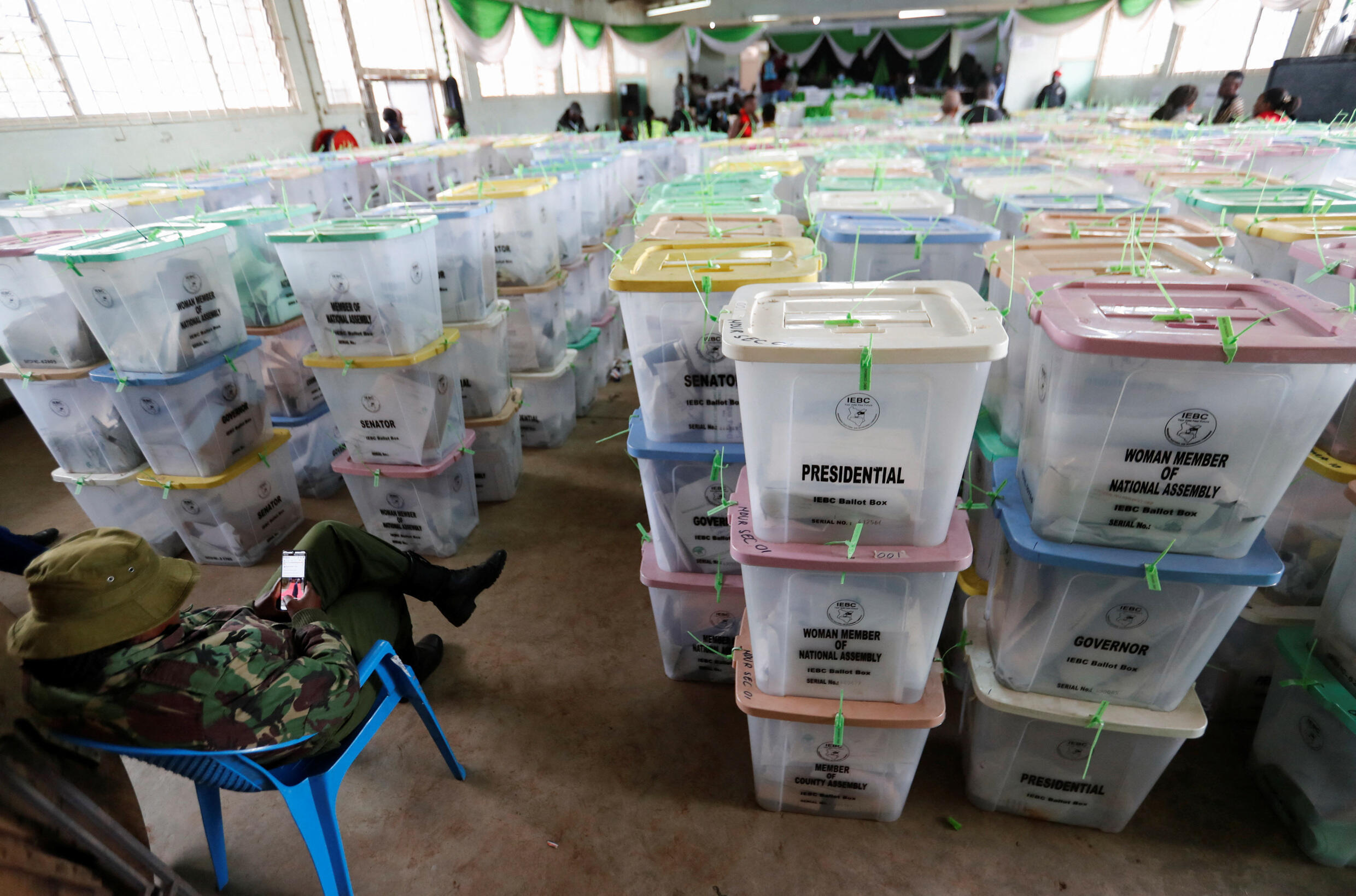By unanimity of the judges of the Supreme Court of Kenya, the victory of William Ruto in the presidential elections of last August was confirmed. The statement comes after the opposition candidate, Raila Odinga, filed an appeal to challenge the results for alleged fraud. Odinga disagreed with the ruling but said he respects it.
Weeks of legal dispute and uncertainty in Kenya over who will rule the country are ending.
The Supreme Court ratified this Monday, September 5, the presidential victory of William Ruto in a scathing opinion that rejected the accusations of fraud of the former prime minister and opposition candidate, Raila Odinga.
The court reported that it found little or no evidence for Odinga’s various claims, calling some of them “nothing more than hot air”.
After learning of the decision, Odinga posted on his Twitter account that he does not agree with the ruling, but that he will respect it.
A pronouncement that alleviates fears that what has been considered the most stable democracy in East Africa in recent years could repeat the post-election violence of 2007 and 2017.
“We respect the court’s decision, although we vehemently disagree (…) Our lawyers presented irrefutable evidence and the facts were on our side, unfortunately the judges saw it differently,” the former presidential hopeful said in a statement.
We have always stood for the rule of law and the constitution.
In this regard, we respect the opinion of the court although we vehemently disagree with their decision today. pic.twitter.com/WfOQrtsnpe
— Raila Odinga (@RailaOdinga) September 5, 2022
Several public figures and anti-corruption activists, including some who had backed Odinga, welcomed the ruling, which they say bolsters the court’s reputation for independence.
“This decision is good for the judiciary. The election result is bad for Kenya. Two things can be true at the same time,” said writer and political analyst Nanjala Nyabola, who did not openly endorse either candidate.
Immediately after the ratification there were no protests in the city of Kisumu, Odinga’s stronghold, nor in the low-income neighborhoods of Nairobi that traditionally support the left-wing politician.
“There is nothing we can do, the trial is done,” said Geoffrey Omondi, a 33-year-old electrical engineer who supported the former prime minister.
Meanwhile, Rutto’s supporters danced and waved flags in their political party’s colors (yellow and green) to celebrate the ratification of his victory.
The key arguments of the Supreme Court
Martha Koome, judge and president of the seven-member high court, left no ambiguity about the court’s position on the main allegations made by Odinga’s team and other complainants.
The magistrate dismissed some affidavits that claimed that the results forms of the electoral colleges had been manipulated. She indicated that it was “double rumors” and “a useless persecution”.
“Some of the (computer) records presented as evidence were from records that emerged from the 2017 election or were outright forgeries,” he said.

Koome also raised the possibility of perjury by noting that two people who filed affidavits purportedly on behalf of polling station officers had not spoken to those officers. “Swearing falsehoods is a criminal offence,” she recalled.
The judges were also perplexed by the fact that four of the seven election commissioners participated throughout the vote count without raising any concern, but then criticized it at the last minute as an “opaque” process.
An action that generated public distrust, indicated the ruling.
The commission “needs far-reaching reforms,” the court acknowledged, “but are we going to annul an election on the basis of a last-minute break in the boardroom?”
In the lawsuit, Odinga’s team questioned the technology used by the Electoral Commission and alleged that the results had been rigged. He also argued that the institution’s president had essentially acted alone in declaring the winner.
But his arguments proved wanting for the magistrates.
The fifth was not the charm
The richest and most influential nation in East Africa has been on tenterhooks since the August 9 elections, which pitted Ruto, the outgoing vice president of the administration, against Odinga, an influential politician and former prime minister.
After the last elections, Odinga has pursued the Presidency of his country for the fifth time and this time, in a surprising turn, he had the support of the outgoing president, Uhuru Kenyatta, who turned his back on his own partner in the Executive.
Similar allegations of fraud had sparked deadly post-election violence, with ethnic overtones, during the previous two elections.
In 2017, the high court annulled the results of the presidential election and ordered a new vote after Odinga also filed a challenge at the time.
But after none of these allegations, the political leader has managed to reach the most important position in his country.

In a post-trial speech, Ruto vowed to respect both Kenyatta and Odinga and said he would prevent law enforcement from conducting politically motivated corruption investigations, something he accused the Kenyatta government of doing. In addition, he communicated that he would not summon his former rival at the polls to serve in his government.
The elected president is expected to take office on September 13.
With Reuters and AP















Add Comment